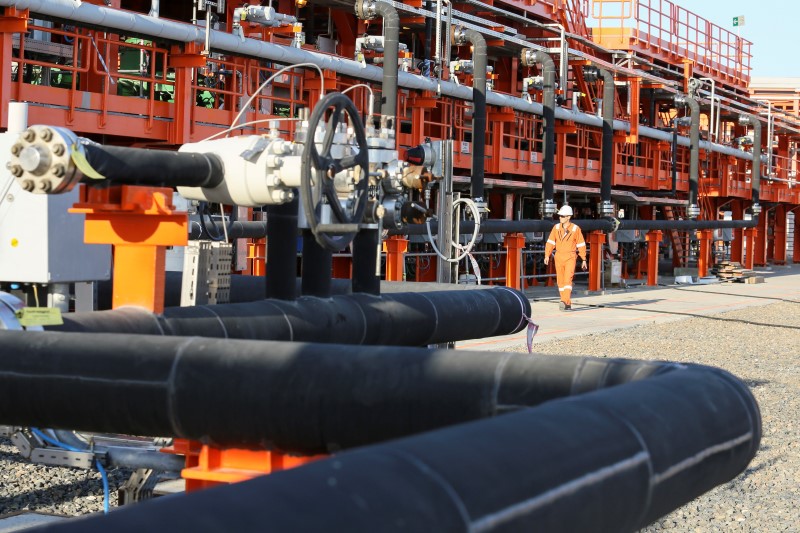TOKYO (Reuters) - Oil prices were steady on Thursday after supporters of President Donald Trump stormed the U.S. Capitol, with investors focusing on the likelihood of tighter supplies after Saudi Arabia unilaterally agreed to cut output.
Brent crude was up 8 cents at $54.38 a barrel by 0125 GMT, after gaining 1.3% overnight. U.S. West Texas Intermediate (WTI) gained 11 cents to $50.74, having slipped earlier in the Asian session. The contract rose 1.4% on Wednesday.
Saudi Arabia, the world's biggest oil exporter, said it would voluntarily cut one million barrels per day (bpd) of output in February and March, after OPEC+, which groups the Organization of the Petroleum Exporting Countries and other producers, including Russia, met earlier this week.
"WTI crude seems poised to rise higher as the Biden administration will clamp down on U.S. crude production, the Saudis tentatively alleviated oversupply concerns with their 1-million bpd cut present, and as the dollar's days seem numbered," said Edward Moya, senior market analyst at OANDA.
A lower dollar makes oil cheaper because the commodity is mostly traded using the greenback.
U.S. crude stocks dropped and fuel inventories rose, the Energy Information Administration said on Wednesday. [EIA/S]
Crude inventories were down by 8 million barrels in the week to Jan. 1 to 485.5 million barrels, against a Reuters poll showing analysts expected a 2.1 million-barrel decline.
The drop in crude stocks is a typical year-end occurrence as energy companies take oil out of storage to avoid tax bills.
Trump supporters swarmed the U.S. Capitol on Wednesday, sending it into lockdown, as Vice President Mike Pence refused a demand from the president to cancel his loss to Democrat Joe Biden before police declared the situation was secure and the certification of the election result resumed.
